This quick guide to Breast Cancer, was updated in icon magazine as a centrefold in 2007 (Breasts, breasts, breasts), and contains 20 facts about breast cancer to get your knowledge up quickly. You will see it covers everything from mammograms, to dairy, pesticides, toxins, parabens and foods you can eat to reduce the risks of breast cancer. Dont forget - men get breast cancer too.
CLICK HERE to READ OUR OVERVIEW
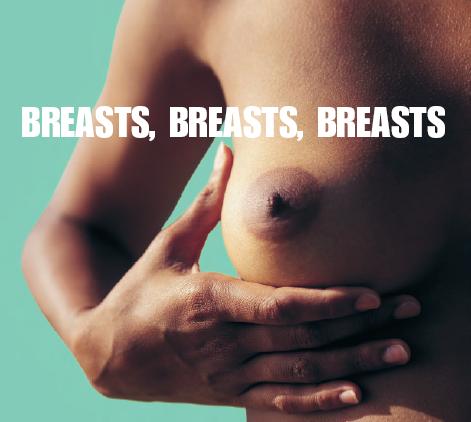 There have been so many articles and reports about breast cancer with many of the best coming from the USA, we think every woman in Britain needs a good summary - so here it is.
There have been so many articles and reports about breast cancer with many of the best coming from the USA, we think every woman in Britain needs a good summary - so here it is.
1: A problem with several genes (e.g. BRCA1, BRCA2, PALB-2) has been linked to increased risk of breast cancer; but this only increases risk for approx 7 per cent of all women. Your breasts are in your own hands.
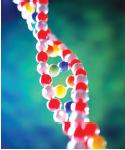 2.
2. Many breast cancers have been linked to oestrogen. Mixed synthetic progesten/oestrogen HRT doubles risk of breast cancer. Synthetic oestrogen-only HRT increases risk by 27 per cent. Then there’s the contraceptive pill, which increases risk by 26 per cent more as you age. Breast cancer rates have fallen in the USA now less women take HRT.
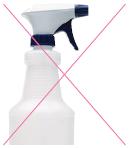 3.
3. Avoid chemicals that are oestrogen mimics. Parabens have been found in breast cancer cells in research. Other potentially harmful oestrogen mimics include toluene (in some nail polishes and perfumes), phthalates (plasticisers in bottles), DEHP (in many perfumed products), BPA (in many plastic toys and white can liners) and chemicals in bleaches and some other household cleaners.
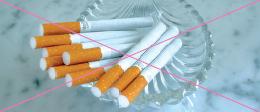 4.
4. Minimise your exposure to cigarette fumes; women are twice as susceptible as men. Limit alcohol consumption.

Three in four cancer patients effectively beat the disease, or learn to have full rewarding lives whilst living with
cancer.

5. Take a probiotic or two. Research shows beneficial bacteria in the gut can break down oestradiol (the aggressive form of oestrogen). Add a high fibre diet it feeds the right bacteria and helps excrete the toxins.
6. Certain B vitamins help break down oestrogen too, while folic acid is essential for correct cell division and low B-12 levels have been linked to breast cancer. Take chlorella, especially if you don’t eat meat.
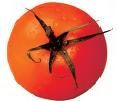 7.
7. Eat 2 helpings of fruit and at least 5 of colourful vegetables (greens, reds, yellows) daily. 72 per cent of women with breast cancer in US research were deficient in vitamin C; polyphenols, e.g. in green tea, are protective and Indole 3 carbinol in broccoli and greens converts aggressive oestradiol to safer alternatives, etc., etc.
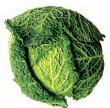 8.
8. Vegetables also increase your phytoestrogens (much safer plant oestrogens) - they block the action of oestradiol. You’ll find large amounts in pulses such as chickpeas, lentils, red clover and soy.
9. US research showed that women with low vitamin E blood levels were 500 times more at risk. Take ’total’ Vitamin E including tocotrienols (e.g. in palm oil) - tocotrienols (officially not allowed for sale in EU countries) collect in breast tissue and protect it. Tocopherols do not help much.
 10.
10. Increase your daily sunshine levels (Not easy? Take vitamin D supplements). Professor Hollick of Harvard says, ’There would be 25 per cent less fatalities from breast cancer if women took adequate daily levels of vitamin D’.
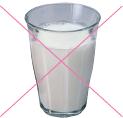 11.
11. Avoid dairy completely, you don’t need the animal fats or the cow’s oestrogen. Worse, dairy increases IGF-1 in the body, which has been linked to breast cancer (Karolinska; Harvard). You can get more than enough calcium from the greens you eat.
12. Eat only good fats and oils like walnut or olive oil, which has been shown to have a protective effect. Animal fats collect in the breast tissue and are great solvents, aiding the accumulation of toxins and unwanted excess hormones like prolactin in the breasts.
13. Eat oily fish three times per week or take daily fish oils; long-chain omega 3 collects in the breast tissue and protects it. Eat garlic it stops tumours building a blood supply.

Smoking and being overweight seriously increases your risks of cancer. Give up and slim down!

14. Sleep well. Irregular sleeping patterns reduce melatonin levels and melatonin has been shown to restrict the dangerous activities of IGF-1 and oestrogen. Avoid Electromagnetic Fields: Power cables, masts and other electrical fields, even inside your home. Research clearly shows they limit protective melatonin production, (You can supplement with melatonin - but the EU doesn’t allow over-the-counter sales of that either!).
15. Have your natural body energy rebalanced every three months a cranial osteopath, acupuncturist, kinesiologist or Reiki master can do this.
16. Do not be overweight. Being more than 7 kgs overweight is statistically worse for you than smoking in terms of cancer risk.
 17.
17. Take daily exercise. It can be yoga, tai chi, swimming or a brisk walk. It reduces cortisol levels, and reduces breast cancer risk. Women with breast cancer who took daily light exercise had 50 per cent less fatalities (Integrative Cancer Therapies, US)
18. Beware screening mammograms; they are inaccurate and do increase risks (icon 2007 issue 1). US research suggests biopsies can spread your cancer. Radiotherapy may cause damage to your lungs and heart ask! Pre-menopausal women should have any operation in the second half of their cycle it doubles long term survival (Guys Hospital)
19. Make time for yourself. Cut out the things and people that cause you grief, make you unhappy, make you feel guilty. Laugh.
 20.
20. Have more children (and breast-feed them longer); it will reduce the number of menstrual cycles and risks.